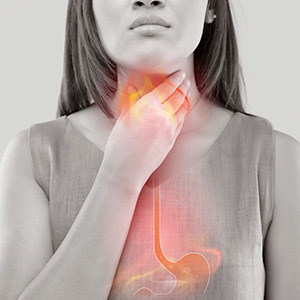
Gastroesophageal reflux disease (GERD) is a chronic digestive condition where stomach acid frequently flows back into the esophagus. This acid reflux can lead to discomfort and a variety of symptoms, affecting daily life. Understanding the causes of GERD and the strategies for preventing it can help manage and reduce the severity of symptoms.
Causes of GERD
GERD occurs when the lower esophageal sphincter (LES), a ring of muscle at the end of the esophagus, weakens or relaxes inappropriately. This weakening allows stomach acid to flow back into the esophagus, causing irritation and inflammation. Several factors can contribute to the development of GERD:
Weakness of the Lower Esophageal Sphincter
The LES is responsible for maintaining a barrier between the stomach and the esophagus. If it becomes weakened or dysfunctional, acid can escape from the stomach and enter the esophagus. This weakness can be due to several reasons, including:
- Hiatal Hernia: A condition where part of the stomach pushes up through the diaphragm into the chest cavity, which can impair the function of the LES.
- Pregnancy: Hormonal changes and increased abdominal pressure during pregnancy can lead to GERD.
- Obesity: Excess body weight can put pressure on the stomach, causing acid to reflux into the esophagus.
Lifestyle Factors
Certain lifestyle choices and habits can exacerbate GERD symptoms or contribute to its development:
- Diet: Foods and beverages such as spicy foods, citrus fruits, tomatoes, chocolate, caffeine, and alcohol can trigger acid reflux.
- Smoking: Tobacco use can weaken the LES and impair the esophageal lining, making acid reflux more likely.
- Overeating: Large meals or lying down shortly after eating can increase the risk of acid reflux.
Medical Conditions
Certain medical conditions can also contribute to GERD:
- Asthma: Chronic coughing and the use of inhalers can increase abdominal pressure and worsen GERD symptoms.
- Diabetes: Poorly controlled diabetes can affect digestion and contribute to GERD.
Prevention of GERD
Preventing GERD involves making lifestyle changes and managing risk factors that contribute to the condition. Here are several strategies to help reduce the risk and manage symptoms effectively:
Dietary Modifications
Making thoughtful changes to your diet can help alleviate GERD symptoms. Consider the following dietary adjustments:
- Avoid Trigger Foods: Identify and avoid foods and beverages that trigger your GERD symptoms. Common triggers include fatty or fried foods, chocolate, mint, garlic, onions, and caffeinated or alcoholic drinks.
- Eat Smaller, Frequent Meals: Instead of large meals, eat smaller, more frequent meals to reduce stomach pressure and prevent acid reflux.
- Stay Hydrated: Drinking water throughout the day can help dilute stomach acid and reduce symptoms.
Lifestyle Changes
Incorporating certain lifestyle changes can also help manage and prevent GERD:
- Maintain a Healthy Weight: If overweight, losing excess weight can reduce pressure on the stomach and improve LES function.
- Avoid Lying Down After Meals: Wait at least three hours after eating before lying down or going to bed. This allows the stomach to empty and reduces the likelihood of acid reflux.
- Elevate the Head of the Bed: Raising the head of your bed by 6 to 8 inches can help prevent acid from flowing back into the esophagus during sleep.
Smoking Cessation
Quitting smoking is beneficial for overall health and can significantly reduce GERD symptoms. Smoking weakens the LES and impairs the esophageal lining, making acid reflux more likely.
Manage Stress
Stress and anxiety can exacerbate GERD symptoms. Engaging in stress-reducing activities, such as exercise, meditation, or yoga, can help manage stress levels and potentially reduce GERD symptoms.
Medication Management
For some individuals, over-the-counter or prescription medications may be necessary to manage GERD symptoms effectively. These may include:
- Antacids: Neutralize stomach acid and provide quick relief for mild symptoms.
- H2-Receptor Antagonists: Reduce the production of stomach acid and provide longer-lasting relief.
- Proton Pump Inhibitors (PPIs) Decrease acid production more effectively and are used for severe GERD symptoms.
Conclusion
GERD is a manageable condition with the right approach to prevention and treatment. By understanding the causes and implementing effective prevention strategies, individuals can significantly reduce the frequency and severity of GERD symptoms. Making dietary and lifestyle changes, quitting smoking, and managing stress are crucial steps in managing GERD. If symptoms persist or worsen, consulting a healthcare professional is essential for proper diagnosis and treatment.
